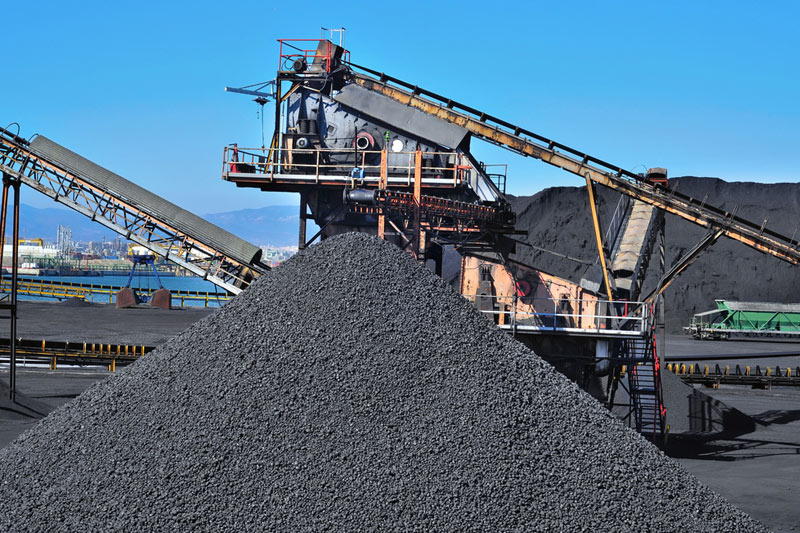WASHINGTON, Jan 13 (Reuters) - Global emissions of mercury
from manmade sources fell 30 percent from 1990 to 2010, in part
from decreasing use of coal, the U.S. Geological Survey (USGS)
reported on Wednesday.
The greatest decline of the toxic pollutant was in Europe
and North America, offsetting increases in Asia, the agency
said, citing an international study. The findings challenge
longstanding assumptions on emission trends and show that local
and regional efforts can have a major impact, it said.
"This is great news for focused efforts on reducing exposure
of fish, wildlife and humans to toxic mercury," said David
Krabbenhoft, a USGS scientist and one of the study's co-authors.
A metal that poses health risks, mercury can be converted
into a gas during industrial activities as well as such natural
events as volcanic eruptions.
The study was carried out by the USGS, Harvard University,
China's Peking University, Germany's Max Planck Institute for
Chemistry and the University of Alberta in Canada. It was
published in the Proceedings of the National Academy of
Sciences.
The analysis found that the drop came because mercury had
been phased out of many commercial products. Controls have been
put in place on coal-fired power plants that removed mercury
from the coal being burned.
Many power plants also have switched to natural gas from
coal, the USGS said.
- English (USA)
- English (UK)
- English (India)
- English (Australia)
- English (South Africa)
- English (Philippines)
- English (Nigeria)
- Deutsch
- Español (España)
- Español (México)
- Français
- Italiano
- Nederlands
- Português (Portugal)
- Polski
- Português (Brasil)
- Русский
- Türkçe
- العربية
- Ελληνικά
- Svenska
- Suomi
- עברית
- 日本語
- 한국어
- 简体中文
- 繁體中文
- Bahasa Indonesia
- Bahasa Melayu
- ไทย
- Tiếng Việt
- हिंदी
Global mercury emissions down 30 pct as coal use drops -USGS
Published 2016-01-13, 03:51 p/m
Global mercury emissions down 30 pct as coal use drops -USGS

Latest comments
Install Our App
Risk Disclosure: Trading in financial instruments and/or cryptocurrencies involves high risks including the risk of losing some, or all, of your investment amount, and may not be suitable for all investors. Prices of cryptocurrencies are extremely volatile and may be affected by external factors such as financial, regulatory or political events. Trading on margin increases the financial risks.
Before deciding to trade in financial instrument or cryptocurrencies you should be fully informed of the risks and costs associated with trading the financial markets, carefully consider your investment objectives, level of experience, and risk appetite, and seek professional advice where needed.
Fusion Media would like to remind you that the data contained in this website is not necessarily real-time nor accurate. The data and prices on the website are not necessarily provided by any market or exchange, but may be provided by market makers, and so prices may not be accurate and may differ from the actual price at any given market, meaning prices are indicative and not appropriate for trading purposes. Fusion Media and any provider of the data contained in this website will not accept liability for any loss or damage as a result of your trading, or your reliance on the information contained within this website.
It is prohibited to use, store, reproduce, display, modify, transmit or distribute the data contained in this website without the explicit prior written permission of Fusion Media and/or the data provider. All intellectual property rights are reserved by the providers and/or the exchange providing the data contained in this website.
Fusion Media may be compensated by the advertisers that appear on the website, based on your interaction with the advertisements or advertisers.
Before deciding to trade in financial instrument or cryptocurrencies you should be fully informed of the risks and costs associated with trading the financial markets, carefully consider your investment objectives, level of experience, and risk appetite, and seek professional advice where needed.
Fusion Media would like to remind you that the data contained in this website is not necessarily real-time nor accurate. The data and prices on the website are not necessarily provided by any market or exchange, but may be provided by market makers, and so prices may not be accurate and may differ from the actual price at any given market, meaning prices are indicative and not appropriate for trading purposes. Fusion Media and any provider of the data contained in this website will not accept liability for any loss or damage as a result of your trading, or your reliance on the information contained within this website.
It is prohibited to use, store, reproduce, display, modify, transmit or distribute the data contained in this website without the explicit prior written permission of Fusion Media and/or the data provider. All intellectual property rights are reserved by the providers and/or the exchange providing the data contained in this website.
Fusion Media may be compensated by the advertisers that appear on the website, based on your interaction with the advertisements or advertisers.
© 2007-2025 - Fusion Media Limited. All Rights Reserved.